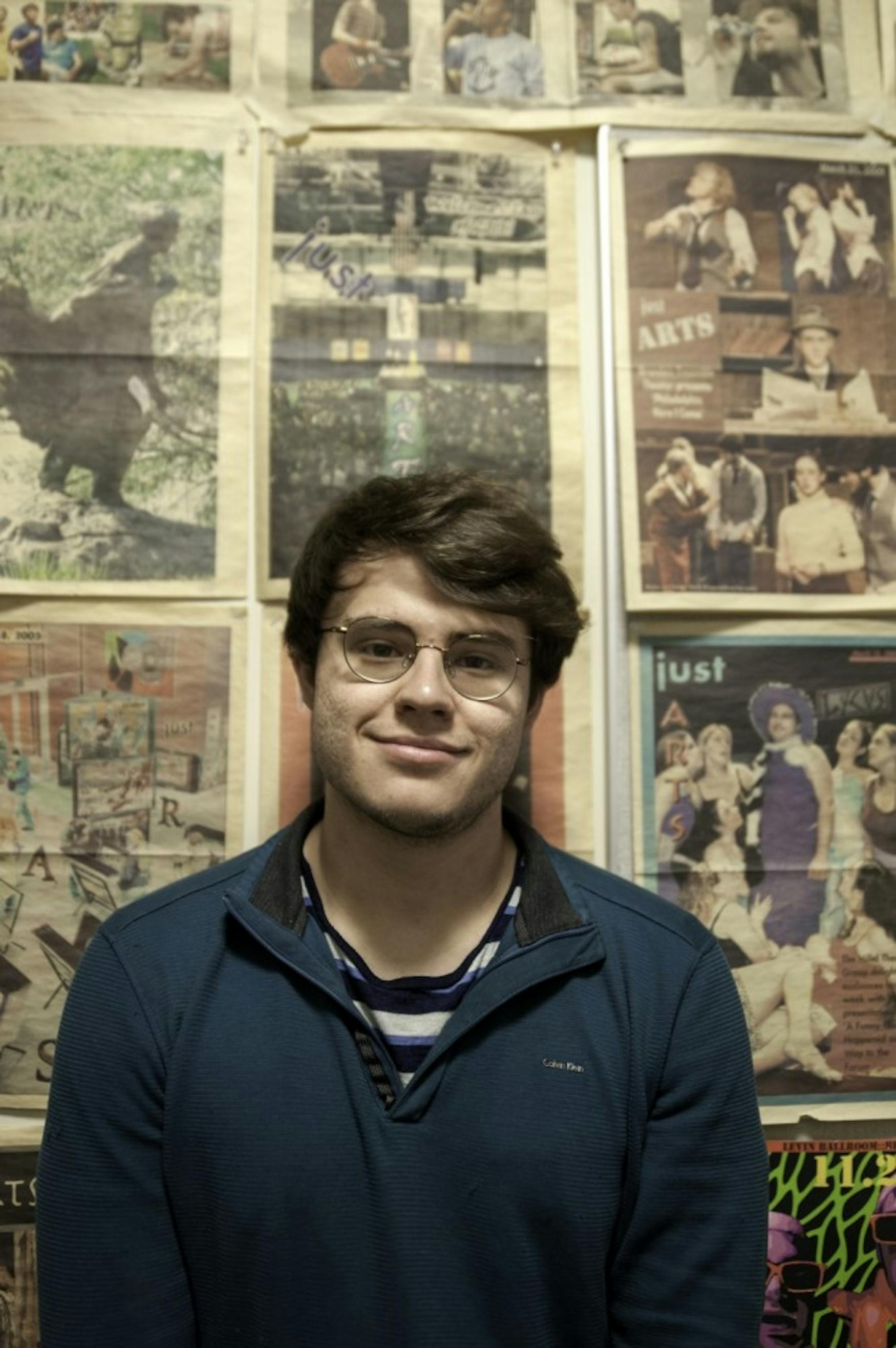Interview: Dylan Hoffman '18
This week, justArts interviewed Dylan Hoffman ’18, who directed “The Danube” for his senior project.
justArts: What attracted you to this play?
Dylan Hoffman: I’m fascinated by [Maria Irene] Fornes. She’s a playwright who’s been on my radar since my freshman year, when I read “Mud.” When I was at [the National Theater Institute], ... we did Fornes plays. The person who came to teach us for Fornes week knows her and he loves her work and he was telling me [about] this show by Fornes called “The Danube” that [he]...could have directed a couple of years back but [he] had to turn it down ... This is tragic, in my opinion, for him. … When I got back to Brandeis, I knew I wanted to do one last project here, and ... I hadn’t gotten “The Conduct of Life,” the Fornes play, out of my mind. I talked to my advisor and ... he said it might be difficult to find the actors you need for that. So I went and got a copy of “The Danube” and I fell in love with the play.
JA: What is the play about?
DH: I don’t think that this play is singularly about anything. I think it’s one of those things that has to kind of exist before you, as a piece of poetry ... a work of art that has all these multiplicities of flavors in it. So that’s a long answer to say, “It’s about fascism.”
JA: Why did you choose the Mandel Atrium?
DH: Because the [Merrick Theater] was full. I mean, I like this space. I think it’s kind of pretty. It’s interesting, it has these windows, which I like. It has this television and I knew I wanted the television. I was hiking in the mountains of Peru over winter break and I was thinking about what I was going to do for “The Danube.” I closed my eyes and there’s this giant red mouth saying “Oh Hungary, we cannot save you” and I was like, “Well, that’s what it’s gonna be.” So I knew I needed a place that had a TV that I could use easily, so that was a natural fit. ... It just felt like the logical choice.
JA: What else influenced the decision to include the mouth on the screen?
DH: I thought it would look compelling, and I thought it would help me a lot in terms of communicating this essentialization of voice and use of speech to kind of control people and control society. And then I happened to cast a lead actress who is hard of hearing, and ... she can’t hear sound cues. I needed a way for her to know when to talk. So the idea came about of just making it so that she could see the mouth. It’s practical and aesthetic.
JA: Is there anything you personally did with the show of which you’re especially proud?
DH: The river! The fact that there was a literal river on stage in the form of this kiddie pool — not in Fornes’ production, not in any other production that I researched. It’s a choice that I was very happy with. I think it gave me a really strong final moment, personally.
—Maya Zanger-Nadis



Please note All comments are eligible for publication in The Justice.